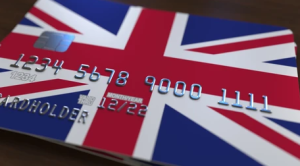When navigating through the financial world, understanding the nuances between UK credit and debit cards can make a significant difference in managing your expenses. It’s essential to grasp how these two types of payment methods function and what advantages each offers. Here, we will explore the key distinctions you need to know.
Financial decisions are pivotal in our daily lives, and choosing between credit and debit cards can impact your financial strategy. Comprehending their differences aids in optimizing your spending and enhancing your financial health. In this post, we delve into the specifics of each, highlighting their unique features. Let’s decode the essentials of these financial tools.
Understanding Credit and Debit Cards

Credit cards and debit cards may appear similar, but they operate differently. When you use a credit card, you are essentially borrowing money from the issuing bank up to a pre-approved limit. This means you are incurring a debt that needs to be repaid later. On the other hand, a debit card allows you to spend money directly from your bank account, meaning you are using your own funds rather than borrowing.
The difference in fund source is a primary aspect that often influences people’s choice between these two cards. While credit cards provide a revolving line of credit, debit cards are linked directly to your bank balance. This fundamental difference can affect various aspects of your financial planning and budgeting.
Both cards come with their own sets of features and benefits. For instance, credit cards often offer rewards, cashbacks, and points that can be redeemed later, whereas debit cards mainly focus on straightforward spending. Knowing these distinctions helps in making informed decisions based on your financial habits and needs.
Credit Cards: Pros and Cons
Credit cards come with several benefits. One significant advantage is the ability to build your credit history, which can be crucial for future loans and financial credibility. By using a credit card responsibly and making timely payments, you can enhance your credit score over time. Additionally, credit cards often come with various rewards programs, travel perks, and consumer protections.
However, they are not without drawbacks. Credit cards can lead to overspending if not managed properly, as the available credit may be seen as readily available money. Interest rates on outstanding balances can be high, leading to increased debt if not paid off promptly. Thus, responsible usage is key to reaping the benefits while avoiding pitfalls.
Moreover, credit cards often come with fees, such as annual fees, late payment fees, and foreign transaction fees, which can add to the actual cost of using the card. Being aware of these fees can help you make a well-informed choice and avoid unexpected charges.
Debit Cards: Strengths and Shortcomings
Debit cards offer simplicity and control. Since spending is limited to the available balance in your bank account, it reduces the risk of accumulating debt. This makes debit cards a preferred choice for individuals who wish to maintain strict control over their finances and avoid the temptation of overspending.
One of the main advantages is the absence of interest charges, as transactions are made with your own money. Debit cards also usually have lower fees compared to credit cards. They are widely accepted and can be used for everyday purchases, making them a convenient option.
Nonetheless, debit cards have certain limitations. They generally do not offer the same level of consumer protections and rewards that credit cards do. For instance, if a fraudulent transaction occurs, resolving such issues with a debit card can be more cumbersome and time-consuming.
When to Use Credit vs. Debit Cards
Deciding when to use a credit card versus a debit card depends on your financial goals and situation. For large purchases or purchases that benefit from rewards and consumer protections, a credit card might be more advantageous. Additionally, if you are looking to build or improve your credit score, frequent and responsible use of a credit card is beneficial.
On the other hand, for everyday expenses and budgeting purposes, a debit card might be more suitable. Using a debit card helps you stick to your budget as it limits spending to the available balance in your account, thereby avoiding debt accumulation.
Situational awareness is crucial in making these decisions. For example, when traveling, using a credit card can offer advantages like travel insurance and lower foreign transaction fees. Conversely, for small daily purchases, using a debit card can help keep your spending in check.
Building Credit with Credit Cards
One of the primary benefits of using a credit card responsibly is the potential to build and maintain a strong credit score. Periodic payments on time demonstrate reliability to lenders, which can positively impact your credit report. Over time, this can facilitate better credit offers, loans, and interest rates.
Regularly using your credit card for manageable expenses and paying off the balance each month can help build a positive credit history. It’s important to monitor your credit utilization ratio, ensuring that you are not using a high percentage of your available credit.



